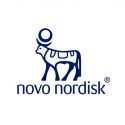CAMBRIDGE, Mass.--(BUSINESS WIRE)--FogPharma, a biopharmaceutical company pioneering a new class of precision medicines that could ultimately prove applicable to all therapeutic targets, including those previously considered “undruggable,” today announced the selection of its lead product development candidate, FOG-001, a first-and-only-in-class direct β-catenin inhibitor. FOG-001 represents the first of FogPharma’s proprietary, conformationally hyperstabilized α-helical polypeptides (Helicon polypeptides), a new class of therapeutics designed to combine the targeting strength and specificity of antibodies with the broad tissue distribution, intracellular target engagement and oral dosing optionality of small molecules.





